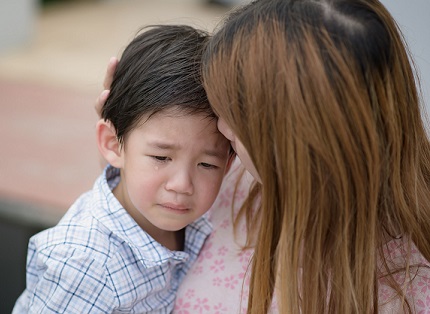Watch, Ask and Listen: How to Tell if Your Child or Teen is Anxious or Depressed
Watch, Ask and Listen: How to Tell if Your Child or Teen is Anxious or Depressed

Families often ask themselves what to look for to know if their child or teen is struggling with anxiety, depression or OCD. And other families are often beating themselves up for not noticing or missing what their children are experiencing.
This is both not hard to do and not easy to do. First, it can be complicated. Secondly, kids and teens often don't tell us that they're in distress even when they are. Some kids and teens want to keep things secret. But most report that they are afraid that others, especially parents, will not understand, or judge, or get upset, or be disappointed.
So I try to tell parents to trust their judgment of what they do see. Then ask and most of all listen.
All kinds of anxiety are about avoidance. So if your child or teen is not doing things that they would like to do, enjoy doing, or used to do, it's a cause for concern. Depression can be more about changes or withdrawal from preferred activities. Depressed kids/teens can say they don’t feel like it, don’t care, or are too tired to do things. They often stay to themselves. Anxiety can be more about not being willing to try things or to take risks. It is different if kids or teens replace some old interests and interactions with new ones and they are glad with the changes.
The other signs that parents do often notice are changes in eating, sleeping, energy, or physical complaints of headaches or stomachaches. If you do notice changes in these areas for more than a week or two, it would be important to ask your child/teen or even to schedule a visit with the pediatrician to review. These changes can occur in both anxiety and depression if there is not a particular stressor that could explain it,
OCD is a land of rules and requirements but OCD is highly treatable. If you see your child having to follow rules or do things a certain way or engaging in repetitive behaviors, do ask. Also a signal that OCD is present is your child’s or your time is taken up in the aspects of daily living- homework, bedtime, dressing, showering, and getting out the door for activities. Also a lot of OCD rituals are mental about doubt or gathering evidence or seeking reassurance. It is important to believe kids when they say they “have to” and don’t ask a lot of why you are doing that.
Many children and teens do feel like they've tried to tell people in their lives, including parents and teachers that they are feeling scared, stressed, or down. And at times these people in their lives don't hear or understand how much it is bothering or impacting them. Just create a safe space and say tell me more. Most kids/teens want to tell their parents if they felt it would be ok to say it.
For all of these childhood difficulties, it would be helpful to ask differently. Try and say straight forwardly what you observe and ask with curiosity. “I have noticed that it is taking you a longer time to get settled for bed and to get to sleep. Have you noticed that- what do you think about that, or does it bother you?” Tell me more about that.
Do just that. If it is an interchange with your child, keep it going. However if they are not following, try not to ask a lot of other questions. Just say it seemed like a change so I wanted to check in with you. Let me know if you want to talk later. I want to know and will listen. Mostly both kids and parents say “I or they do not seem like themselves”- so share this observation without judgement. You also can get feedback from other adults like teachers and pediatricians.
However trust your own sense if something concerns you.












